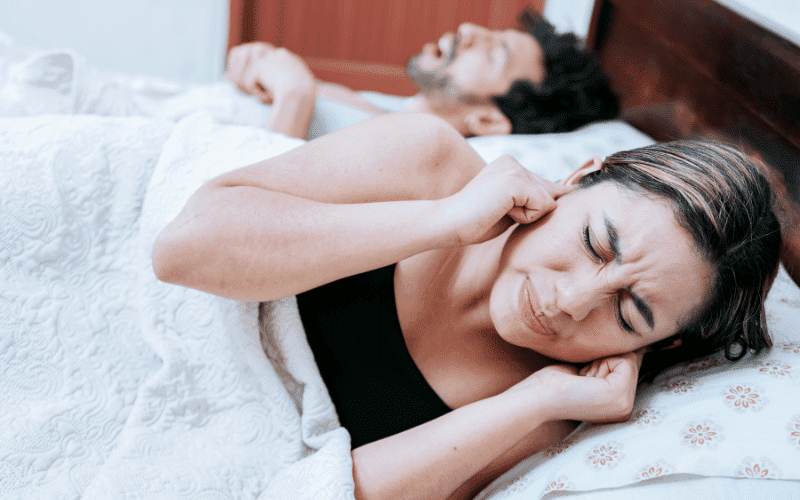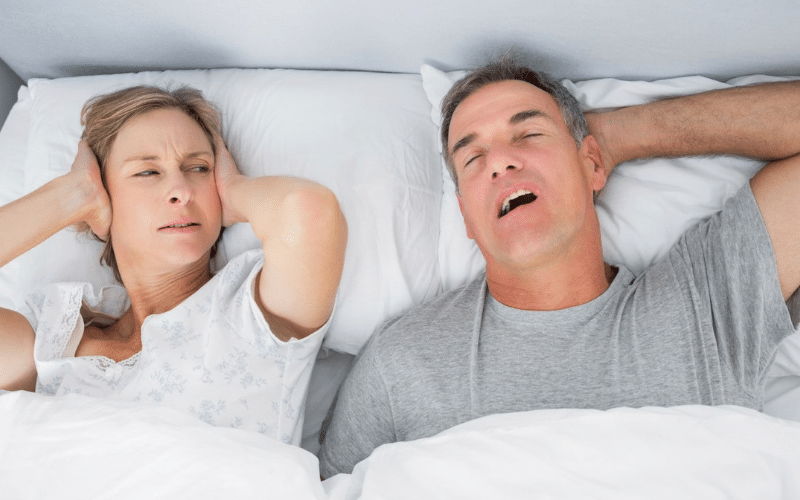ONLINE SCHEDULING AND VIRTUAL CONSULTS AVAILABLE

The Mouth-Body Connection: How Sleep Apnea Affects Your Teeth And Gums

In the quiet hours of the night, while the world sleeps, your body is engaged in a complex dance of restoration. Sleep is not just a period of rest; it’s a crucial time when your body heals, regenerates, and rejuvenates. However, for those grappling with sleep apnea, this nocturnal sanctuary becomes a battleground. What many might not realize is that the repercussions of sleep apnea extend beyond mere fatigue and restlessness – it can leave an indelible mark on your oral health, emphasizing the importance of sleep apnea treatment in Plantation. In this journey through the night, let’s unravel the intricate ties between sleep apnea and the well-being of your teeth and gums.
Understanding Sleep Apnea
Before we delve into the mouth-body connection, it’s essential to grasp the fundamentals of sleep apnea. This sleep disorder is characterized by interrupted breathing during sleep, leading to momentary awakenings and disturbances in the natural sleep cycle.
While there are various types of sleep apnea, the most common ones are obstructive sleep apnea (OSA), where the airway is blocked, and central sleep apnea, which results from a failure of the brain to send proper signals to the muscles that control breathing. The consequences of sleep apnea extend beyond the restless nights it inflicts. From cardiovascular issues to cognitive impairment, its impact is profound. What often goes unnoticed, however, is its intricate connection with your oral health.
The Mouth-Body Connection: A Two-Way Street
Dry Mouth Dilemma
One of the primary repercussions of sleep apnea is dry mouth or xerostomia. As breathing halts, the flow of saliva diminishes. Saliva plays a crucial role in maintaining oral health – it helps neutralize acids, wash away debris, and prevent the proliferation of harmful bacteria. A dry mouth, on the other hand, creates a conducive environment for bacterial growth, paving the way for tooth decay and gum disease.
The Grind and the Groan
This is often accompanied by a notorious nighttime companion – bruxism or teeth grinding. The struggle for breath triggers a subconscious response to clench the jaw and grind teeth. This mechanical assault on your pearly whites can lead to enamel erosion, tooth sensitivity, and even fractures. The repercussions extend beyond the dental realm, contributing to headaches, jaw pain, and muscle soreness.
Inflammation and its Domino Effect
The oxygen deprivation characteristic of sleep apnea can set off a chain reaction of inflammation. Inflamed gums become a breeding ground for bacteria, accelerating the progression of periodontal diseases. Conversely, existing oral health issues can exacerbate inflammation, intensifying the severity of sleep apnea. It’s a symbiotic relationship with potentially dire consequences.
Recognizing the Signs
Understanding the signs that your teeth and gums are caught in the crossfire of sleep apnea is crucial. Here are some red flags:
- Persistent Bad Breath: If your morning breath lingers throughout the day despite meticulous oral hygiene, it might be a sign of compromised sleep and potential sleep apnea.
- Worn-down Teeth: Teeth that appear flattened, chipped, or excessively worn could be indicative of bruxism associated with sleep apnea.
- Gum Disease Onset: Inflamed, bleeding or receding gums may signify the onset or exacerbation of periodontal diseases linked to sleep apnea.
- Frequent Cavities: A sudden increase in cavities, even with regular dental care, could be a result of reduced saliva flow caused by sleep apnea-induced dry mouth.
Preserving Your Smile: A Holistic Approach
- Consulting a Specialist: Seeking professional help for sleep apnea is paramount. Sleep specialists can diagnose the severity of the condition and recommend appropriate interventions, such as continuous positive airway pressure (CPAP) therapy or lifestyle modifications.
- Guarding Your Grind: If bruxism is identified, a custom-fitted nightguard can act as a protective shield for your teeth, preventing the destructive consequences of grinding and clenching.
- Hydration is Key: Combatting dry mouth involves staying well-hydrated. Sipping water throughout the day can help mitigate the effects of reduced saliva production.
- Oral Hygiene Vigilance: Maintaining a rigorous oral hygiene routine becomes even more critical for those with sleep apnea. Regular brushing, flossing, and dental check-ups are essential to ward off the oral health ramifications.
As the night unfolds its mysteries, the symbiotic relationship between sleep apnea and oral health becomes clearer. The repercussions are not confined to the bedroom; they echo through your smile, impacting the very essence of your well-being. Recognizing the signs, seeking professional guidance, and adopting a holistic approach to oral care with the expertise of My Dentist for Life of Plantation are pivotal steps in navigating this intricate connection. Understanding the dynamics of the mouth-body connection is not just an insight into the consequences of sleep apnea – it’s a call to action. As you embark on the journey towards healthier nights and brighter smiles, may your rest be undisturbed and your mornings radiant.





